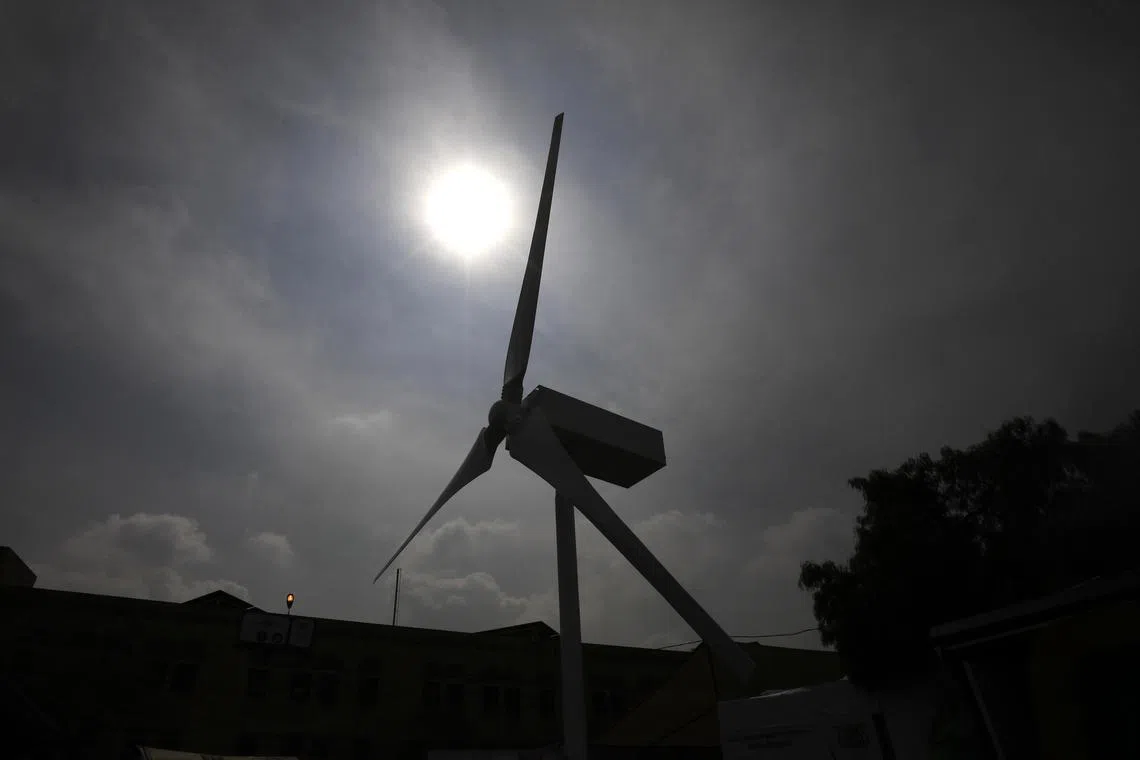Set up renewable energy in developing world to limit global warming: Report
Sign up now: Get ST's newsletters delivered to your inbox

Public capital should be redirected from the fossil fuels sector to renewable energy to support the transition, the International Renewable Energy Agency urged in a report.
PHOTO: EPA-EFE
PARIS – Renewable power must be increased more rapidly in developing countries to ensure the energy transition necessary to limit global warming, according to a new report released on Monday.
The latest finding came from the International Renewable Energy Agency (Irena), published shortly before the world convenes in Dubai for COP28.
“Given their growing electricity demand and the important role of renewables in addressing the significant energy access deficit in these countries” renewables must be boosted, said Irena.
Renewable power generation must triple globally by 2030
That is required to bring it in line with the ambitious goals set by COP28 President Sultan Ahmed Al Jaber for the UN climate conference held from Nov 30 to Dec 12.
The target set by the 2015 Paris Agreement was to try to cap Earth’s temperature rise to 1.5 deg C above pre-industrial levels.
The world must also mobilise to reach US$1.3 trillion (S$1.78 trillion) annually in renewable energy investments by 2030, compared with US$486 billion in 2022, said the report.
But to do so it will be necessary to “minimise investment risks and provide access to low-cost financing” in developing countries, it added.
To support the Global South in its energy transition, the Irena report recommended a reform of global financial systems.
The “climate-related funding from multilateral development banks must be ramped up, and public capital should be redirected from the fossil fuels sector to renewable energy”, it said.
Africa received just 2 per cent of the cumulative US$2.8 trillion invested in renewable energy worldwide between 2000-2020, the report noted.
What is needed to change that were innovative financial models – such as scaling up public-private partnerships to drive the modernisation of electricity infrastructure in developing nations.
“There is an urgent need to boost cross-sector infrastructure planning, increase cross-border cooperation and develop regional power grids,” it said. AFP


